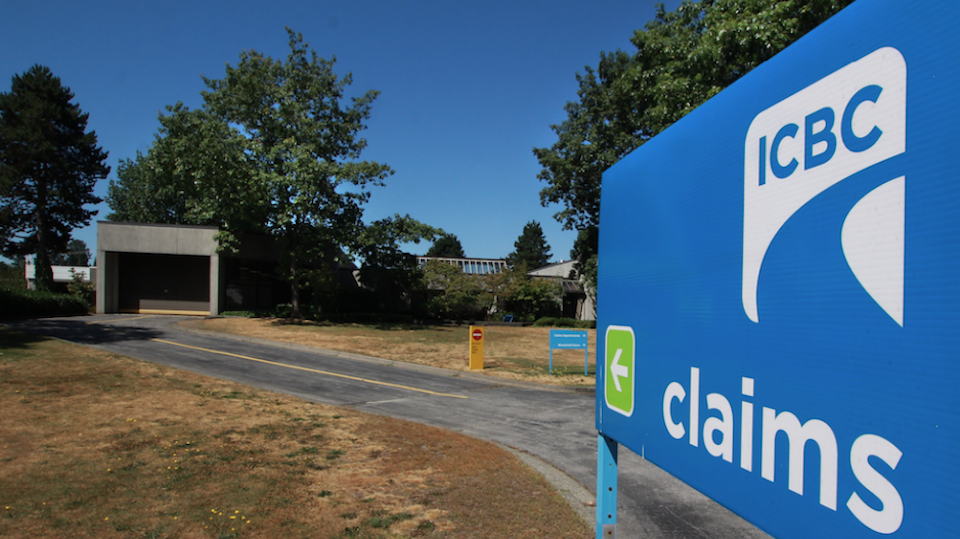Stop me if you’ve heard this one before: A premier, trying to appease angry voters, raids the finances of B.C.’s public auto insurer for short-term political gain at the expense of its long-term financial stability.
No, it’s not 2013 under the BC Liberals. Welcome to 2022 under the BC New Democrats, where the party that once promised to leave its grubby mitts off of the finances of the province’s Crown corporations now has its sticky little fingers all over the financial figures as well.
Premier David Eby appeared caught off guard Monday that anyone would interpret his announcement of a politically ordered two-year rate freeze at ICBC as, well, political interference.
And he rejected suggestions that starving ICBC of revenue during a year in which it is projected to lose $298 million would have any ramifications whatsoever.
“The bottom line is ICBC needs to be self-supporting,” said Eby.
“The rates that they charge need to cover expenses at ICBC. British Columbians will know that for a significant number of years that was not true, to the point of ICBC losing more than a billion dollars in a single year. That is not the case now.”
No, ICBC hasn’t lost one billion in a single year – it has lost $625 million in the past four months.
Its investment portfolio has tanked due to the economic downturn, its growth in new vehicle claims collapsed and its claims costs rose. Hardly the picture of a “self-supporting” financial situation.
But the new premier was not done. He and ICBC CEO Nicolas Jimenez started creating new accounting terms on the fly, to justify the freeze.
Don’t worry about pesky things like “net income” or obtuse documents like the government’s own quarterly financial updates, they argued. Those boring old papers are where the law means “ICBC has to report, even when they haven’t sold investments, the rising and falling value of those investments,” explained Eby.
Instead, there’s one new financial measurement to rule them all: Core business profitability.
“You kind of have to separate how the business is running, versus how are the investment markets treating our $20 billion investment portfolio,” said Jimenez. “The core business is doing well.”
Eureka, it’s a miracle! All the bad numbers melt away from the totals when you take, er, the bad numbers away from the totals.
Of course, that’s not how ICBC has ever reported its finances in the past.
The NDP government never bothered to subtract “investment” profits (worth $1.4 billion) out of ICBC’s $2.2 billion surplus last fiscal year, when it claimed to have effectively extinguished the dumpster fire financial situation at the auto insurer. Back then, the math worked in the NDP’s political favour.
When pressed for details on how a money-losing organization could justify a two-year freeze, Jimenez referred people to “the many thousands of pages in our filings” from ICBC to the independent BC Utilities Commission. Except, the government couldn’t provide any of those pages publicly Monday.
Eby said he wanted the BCUC to conduct a thorough and transparent review of ICBC’s request for a rate freeze, but then hedged on whether the commission could say no to the idea if the numbers didn’t make sense. It has the legal mandate to do so as the regulator, which Eby described simply as an “opinion.”
“We’ll review that when we receive it,” he said. “British Columbians should know that our first priority is making sure that life is affordable for them.”
So will the BCUC be able to refuse the Eby government? Translation: No.
The messy press conference was further confused by the simultaneous release of a cabinet order that looked like it ordered the commission not to approve anything other than zero per cent for rates. Not so, insisted New Democrat officials, who scrambled to contain the optics of the release.
The ICBC announcement was a rare misfire for the new Eby administration, and especially odd considering the premier’s long history on the ICBC file as the attorney general who brought in no-fault insurance. But the explanations were poorly crafted. The math did not add up. And the political counterattacks were laughable.
“For many years, government drew down those [ICBC] reserves to crisis levels, to pretend that things were okay at ICBC instead of making the difficult decisions, to make sure that ICBC worked properly for British Columbians,” Eby said, describing the previous Liberals.
“We're not doing that.”
Oh really? New Democrats appear just as willing as the Liberals were to fiddle with ICBC’s finances to bolster their political ambitions.
Rob Shaw has spent more than 14 years covering B.C. politics, now reporting for CHEK News and writing for Glacier Media. He is the co-author of the national bestselling book A Matter of Confidence, and a regular guest on CBC Radio.



